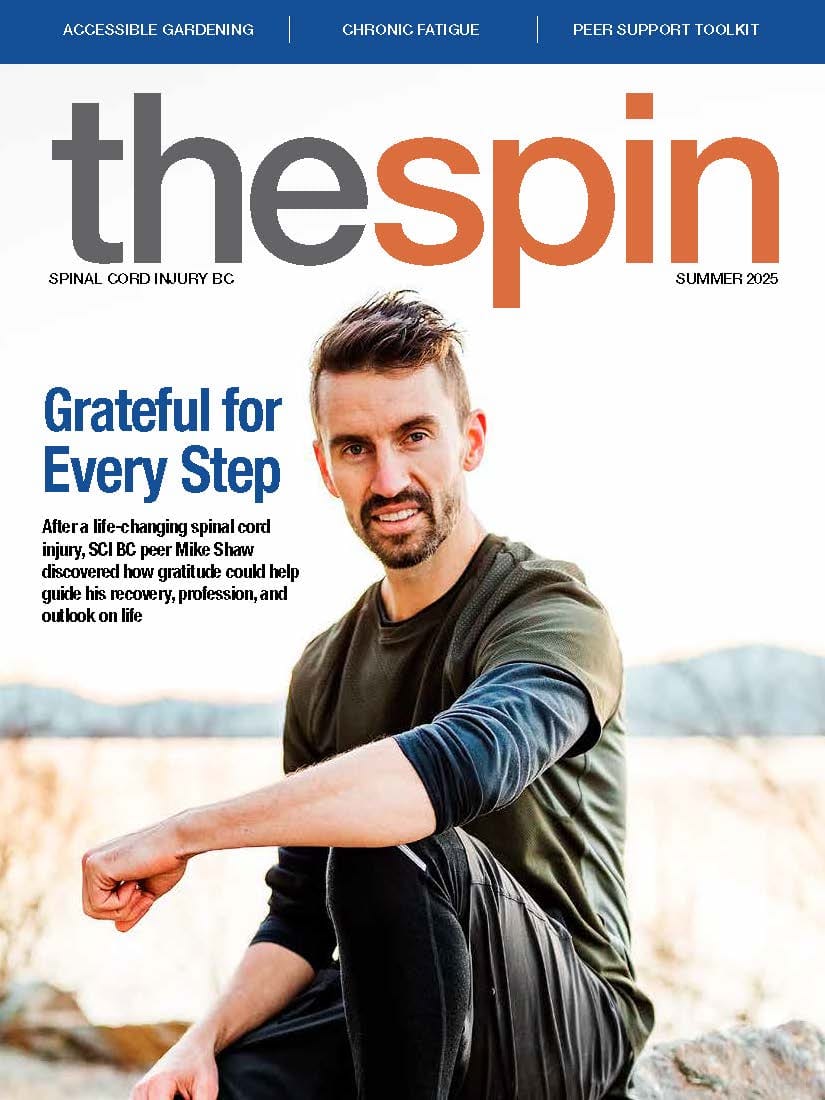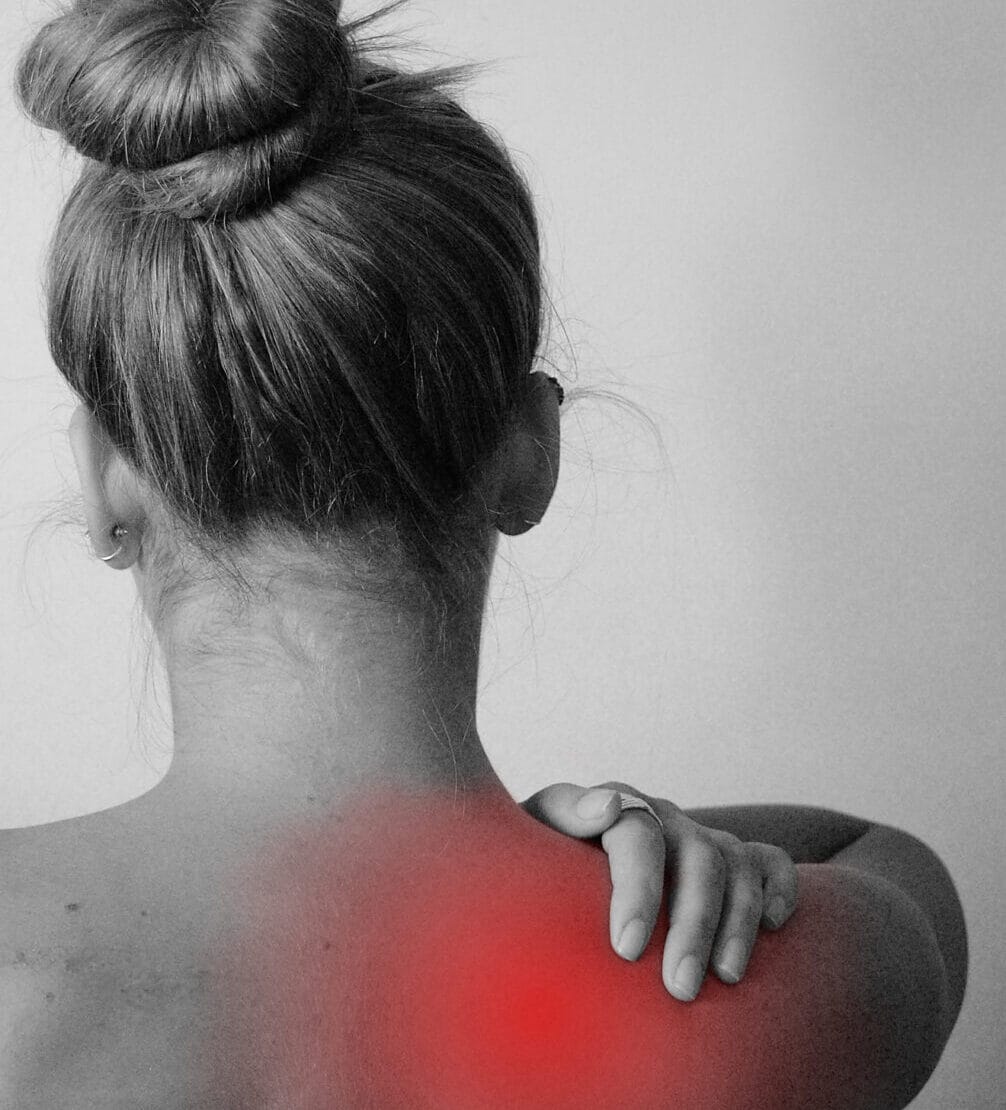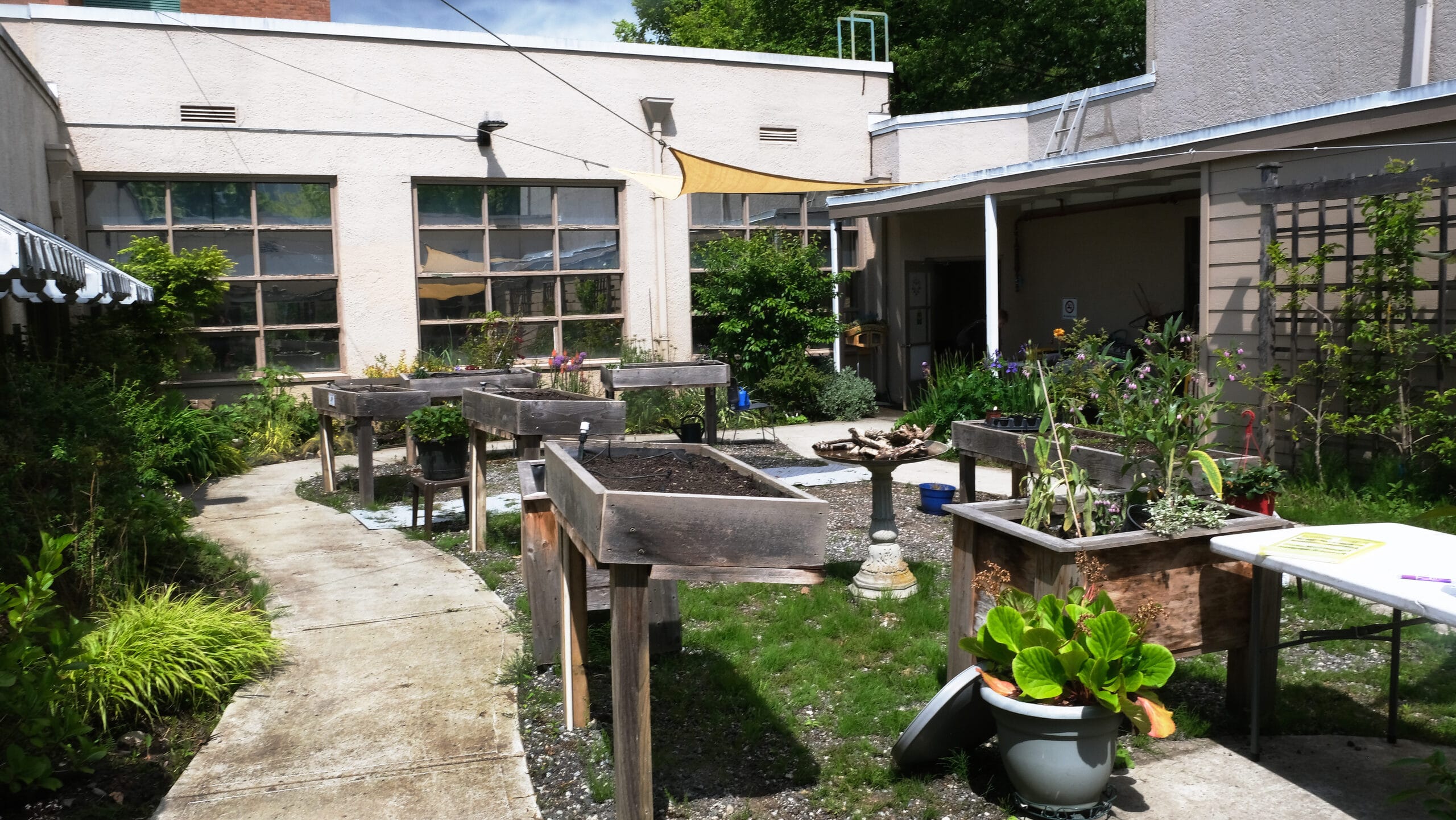
When it comes to gardening with an SCI, there’s a little bit more to it than just having a green thumb. Ground-level garden beds, limited hand function, uneven terrain, and unpredictable weather may all be challenging factors currently deterring you from planting roots in this new hobby—but don’t worry, SCI BC and the Disabled Independent Gardeners Association (DIGA) have teamed up just in time (or should we say, thyme?) for the summer gardening season to help you get you started.
Established in 1987, DIGA is one of six societies supported by the Disability Foundation. Its mission is to help people with physical disabilities overcome barriers to gardening and provide them with the tools and support to flourish, both in their gardening plots and in their lives. Bryden Veinot, Senior Program Coordinator with the Disability Foundation explains the three main ways to get involved with DIGA: community gardening, home gardening, and workshops.

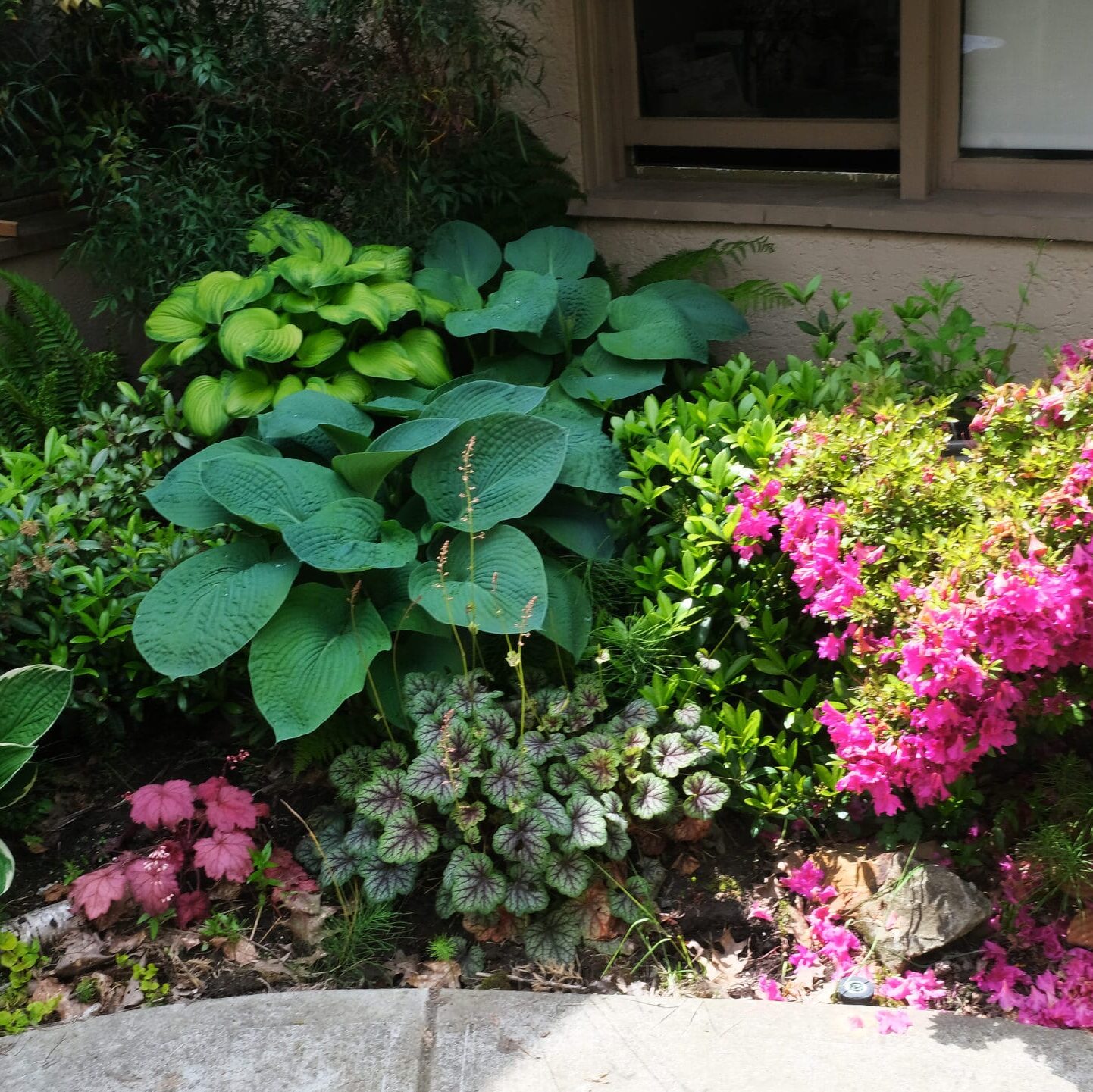
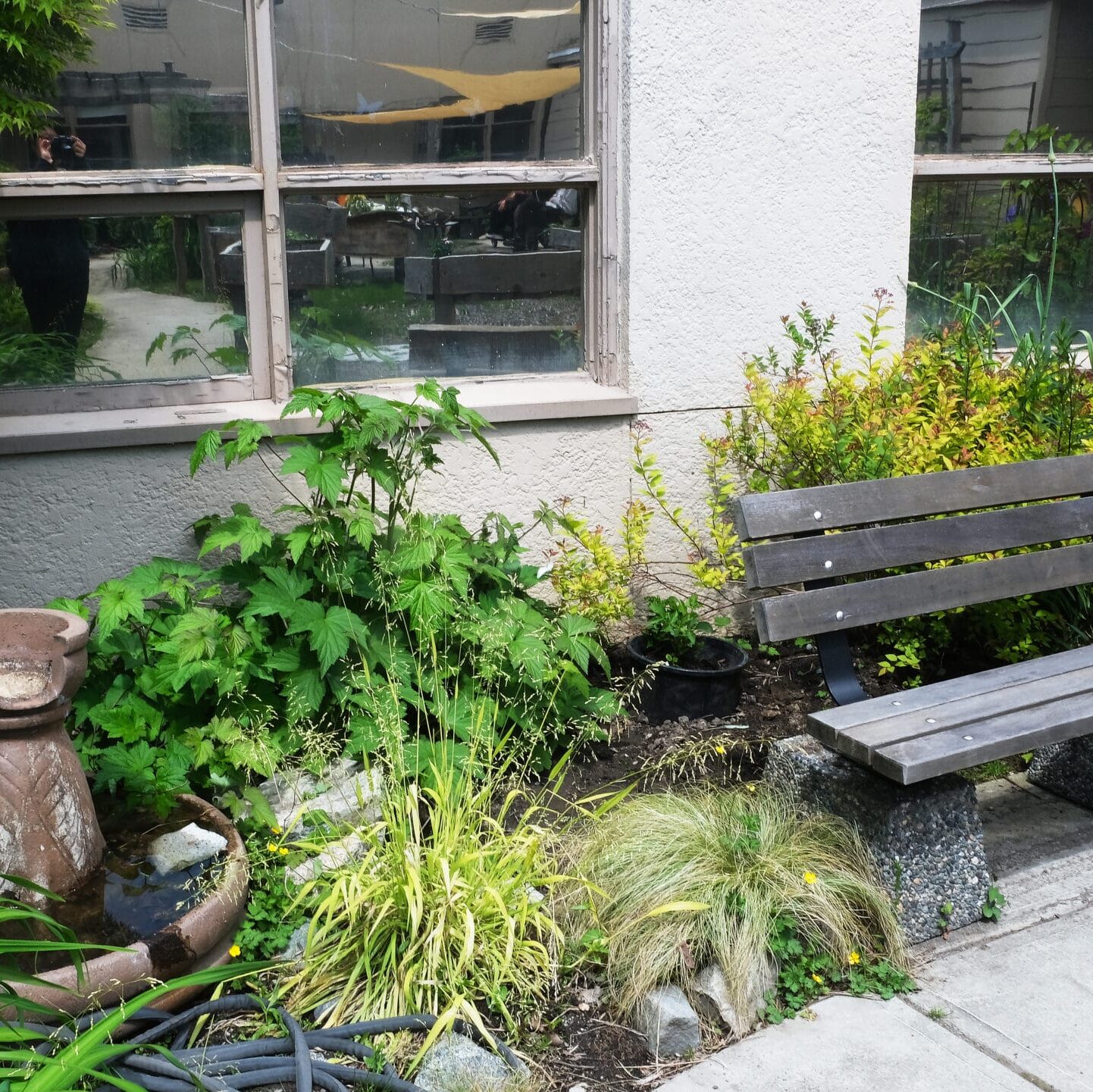
G.F. Strong community garden.
Community Gardening
“We operate out of eight community gardens right now,” Veinot explains. “There’s one at G.F. Strong, which a lot of people in our community are aware of, but we also run programming out of Still Creek, Pine Street, Brewery Creek, Pandora, Kerrisdale, G.F. Strong, Woodland, and Mount Pleasant.” Each DIGA gardening space comes equipped with a raised plot or tabletop garden, an automated irrigation system for watering, access to a toolshed and supplies, and the option to work with a volunteer who can help with gardening tasks like planting seeds, weeding, harvesting, and regular maintenance.
“How participants manage their community garden space is totally up to them. If they have the ability to get in there and do it themselves, that’s fine…having freedom and agency to do the things you love to do and being able to do them by yourself is important. But if you do find out there are barriers that are keeping you from doing certain things in the garden that you want to be able to do, then we do find volunteers to pair up [with people].” The community gardening season typically runs from May to September (depending on the weather) and space fills up quickly. If you missed out on a spot this year, can’t travel to your neighbourhood garden, or don’t live in the Lower Mainland you can still start sowing with DIGA’s home gardening program.



Community gardens from left to right: Pandora, Woodland, and Still Creek.
Home Gardening
Working in partnership with Tetra, another Disability Foundation affiliated society, DIGA is able to provide free home gardening planters upon request. For the unfamiliar, Tetra builds innovative solutions for people with physical disabilities through a national network of volunteers. Solutions can range from simple cup holders or hand grips all the way to voice controlled door openers or adapted wheelchairs. Each assistive device or creation is shared online via an open access database that includes designs, costs, and details that anyone can use.
The home gardening planters Tetra builds for DIGA have been adapted from commonly sourced outlets like Costco or Home Depot and are raised high enough so a wheelchair (or other type of mobility device or seating aid) can be used while gardening. “The planters are on wheels with locking casters, and there is also a hose attachment for self-irrigation,” Veinot describes. “Anyone who’s signed up as a participant with DIGA can request one and we will build it with Tetra and deliver it for free. Once it’s all set up it’s actually quite low maintenance.”
Because Tetra has a presence throughout Canada, there’s no geographical limit to this type of home gardening support. “Even if you’re on the other side of the country, you [should] be close to a local Tetra chapter and could put in the request for a home gardening planter and they should be able to build it.”

Workshops
Still not convinced gardening is the right fit for you? We suggest attending a workshop. Held monthly, DIGA workshops are a low pressure way to learn more about a gardening topic that interests you. Workshops that are more hands-on run in-person at G.F. Strong or the Creekside Community Center, while workshops that are framed as information or education sessions are
delivered online.
“You don’t need any experience,” says Veinot. “You don’t need to have a background in gardening or know anything. If it interests you, then reach out because through the workshops and with the support of volunteers or staff, we can fill in that knowledge and help you learn. Even if you don’t think you have the skills to do it, there are people here to help you feel comfortable.”
One of the first DIGA workshops of the summer is scheduled for June 25 at VanDusen Botanical Garden and Veinot encourages new participants to attend. The workshop will include a guided tour of the facilities and all attendees will also receive a day pass to continue exploring the gardens after the event wraps up.
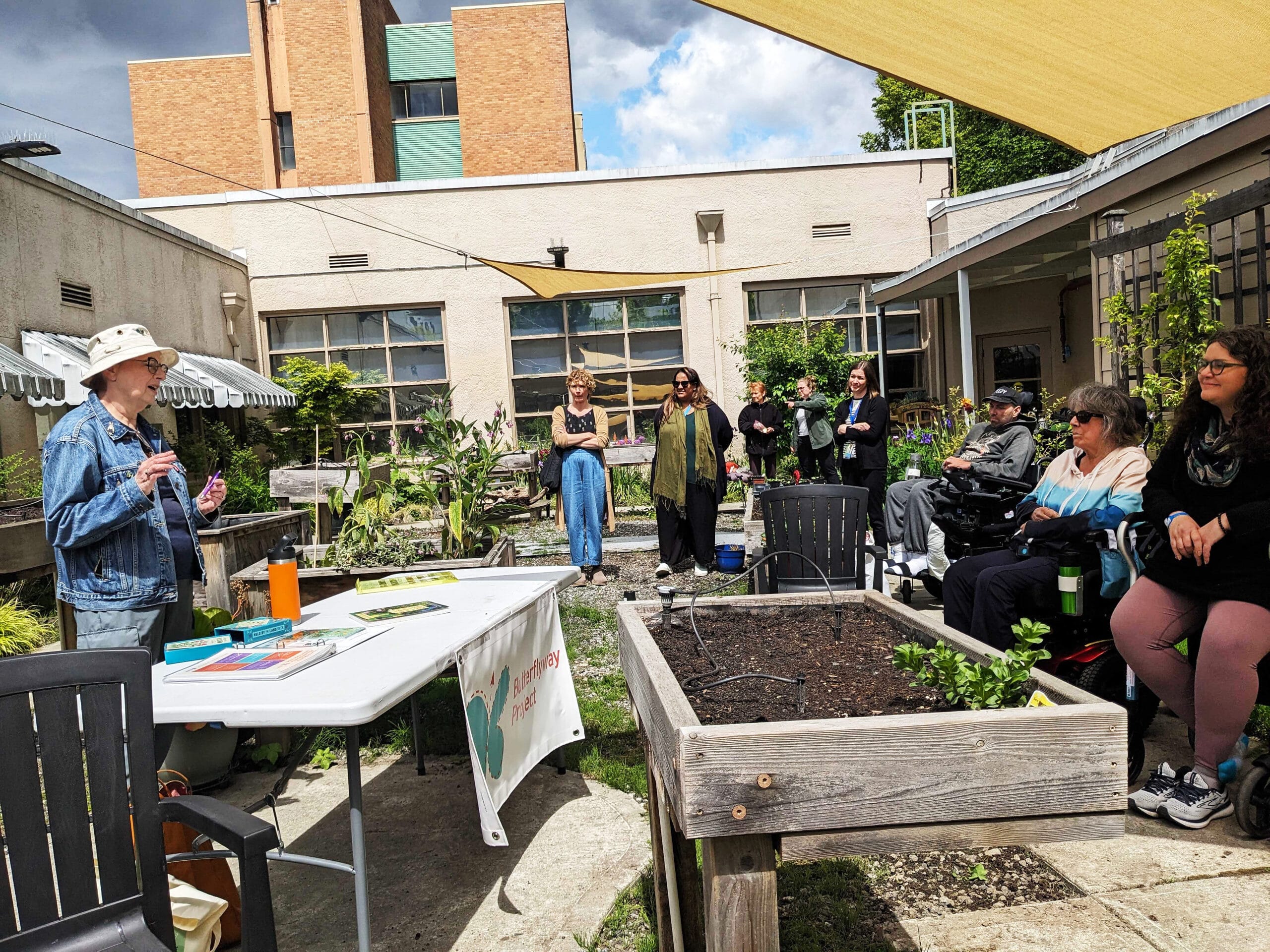
DIGA’s Top 3 Things to Know Before You Grow
Use Adaptive Tools: Depending on your level of injury and grip strength, you may have difficulty using common gardening tools. Pushing and lifting a trowel or pulling a hand rake can require a lot of effort and off-the-shelf tools aren’t also built with comfort in mind. DIGA suggests contacting your local Tetra chapter with your concerns and they can work with you to build a solution. DIGA has also had success using adaptive tools like trowels and cultivators using an Easi Grip Arm Support Cuff by Peta that has a 90 degree grip and an extended handle to brace against your arm.
Make a Plan: “A lot of the time, the success of the plant is based on when you plant it and the time of season and what kind of soil you have,” explains Veinot. If you can, always refer to the seed packet or seedling container for instructions on when and how to plant. DIGA can connect you with extensive online resources like regional planting guides or maps, or they can help you keep things simple with one or two planting suggestions. There are no absolutes when it comes to gardening, but when in doubt, start with something that is known to grow well where you are gardening.
Enjoy the Moment: Gardening can teach us a lot about ourselves. It requires patience and commitment and a little bit of luck. Plants, like us, grow best with a good supply of water, nutritious food, a little bit of sunshine, and the support of others. “Being able to get outside and work with your hands or get a little dirty, is a lot of fun,” Veinot says. “Once you’re actually out doing whatever [DIGA] has set you up to do, you’re not focusing on your barriers or anything to do with your disability. You’re just there in the moment, hanging out with like-minded people and having a good time.”
You can learn more about DIGA by visiting digabc.org, emailing info@digabc.org, or calling 604-688-6464.
The Disability Foundation is a member of the BC SCI Network, a collaborative network of five disability organizations including SCI BC, BC Wheelchair Sports Association, BC Wheelchair Basketball Society, and the Neil Squire Society.
This article originally appeared in the Summer 2025 issue of The Spin. Read more stories from this issue, including:
- Peer health coaching
- Treatments for fatigue
- Measuring peer support programs
And more!
